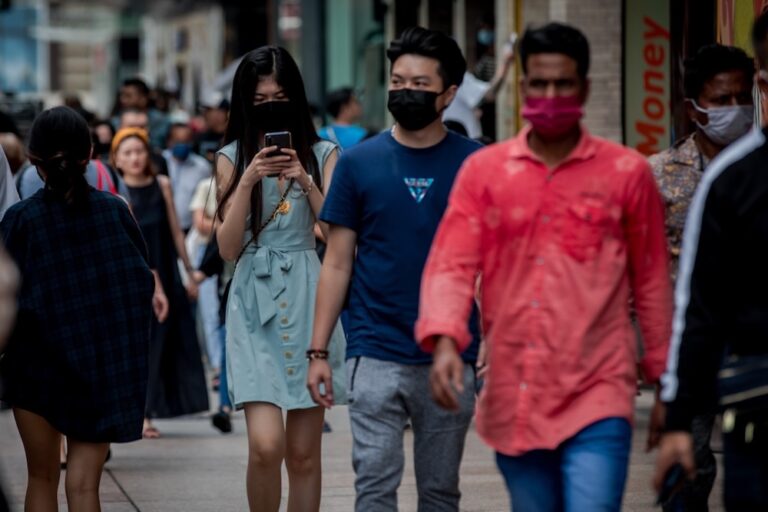(ARTICLE 19/IFEX) – The following is an ARTICLE 19 press release: MALAYSIA: NEW REPORT REVEALS HAZE OF SECRECY AS CRUCIAL ENVIRONMENTAL INFORMATION DENIED In the aftermath of the worst floods to hit Malaysia for thirty years, ARTICLE 19 and the Center for Independent Journalism (CIJ) will today launch a spearheading report entitled A Haze of […]
(ARTICLE 19/IFEX) – The following is an ARTICLE 19 press release:
MALAYSIA: NEW REPORT REVEALS HAZE OF SECRECY AS CRUCIAL ENVIRONMENTAL INFORMATION DENIED
In the aftermath of the worst floods to hit Malaysia for thirty years, ARTICLE 19 and the Center for Independent Journalism (CIJ) will today launch a spearheading report entitled A Haze of Secrecy: Access to Environmental Information in Malaysia.
It’s been just three weeks since the worst floods in thirty years devastated the Malaysian population, forcing tens of thousands of people to flee their homes. Victims of the floods had reportedly experienced difficulty in accessing information on prevention measures and there are concerns that now that aid is finding its way to the affected areas, information on aid distribution may also not be disseminated as well as it could.
The Malaysian government has a notoriously bad track record of making environmental information available. The haze crisis of 1997/1998 and 2005 is perhaps the most infamous example wherein, at the peak of extreme haze levels caused by pollution, the Air Pollutant Index (API) was kept a State secret.
“With more than 45 countries in the world having already adopted right to know legislation and many more taking steps to this end, now is the time for the Malaysian government to breathe life into a culture of openness through the adoption and promotion of a legislative environment that upholds the people’s right to know,” says Dr. Agnès Callamard, Executive Director of ARTICLE 19.
ARTICLE 19 and CIJ’s new joint report exposes the embedded culture of secrecy of the Malaysian government, which envelops all levels of its administration, denying individuals their internationally recognised right to access information. The Official Secrets Act and other restrictive legislation is liberally employed to silence calls for the release of environmental information. For example, the Malaysian government is throwing its investment behind the development of biotechnology, in the belief that it will generate huge profits for the bio-rich state. Yet, despite clearly being in the public interest, the draft National Biotechnology Act along with much information related to the development in biotechnology, including health risks, have been hidden away under the classification of the Official Secrets Act.
People are being pushed off their lands to make way for large-scale development projects but attempts to access information with which to challenge these decisions are met with barriers at every juncture. Environmental Impact Assessments (EIAs) provide the principal means for people to access environmental information on development projects that are likely to impact on their local environment. However, it is not uncommon for an EIA to be disseminated after the development project in question has been agreed to and there is little opportunity for reversing this decision or for participating in processes by which alternatives can be discussed and explored. Moreover, the cost of obtaining an EIA is often so prohibitive that it is literally economically unviable for affected communities to obtain a copy.
The report will be launched at a landmark event to be attended by a number of media, academics, government officials and civil society activists. The event will also lend support to the campaign for the adoption of right to know legislation in the state of Kelantan. The Deputy President of Kelantan, Timbalan Menteri Besar, has publicly stated his commitment to ensuring the law is adopted and it is hoped that the State can lead the way for subsequent States, and ultimately the central government, to adopt their own right to know legislation.
The report makes the following recommendations:
Legislation
– An access to information law which is consistent with international standards should be adopted and implemented as a matter of priority.
– Secrecy legislation and legislation restricting the free flow of information should be reviewed for compliance with international standards and amended and/or repealed as necessary. In particular, the Printing Presses and Publications Act should be repealed and the Official Secrets Act should be substantially revised.
– The proposed whistleblower legislation and Biosafety Bill, which should impose stringent disclosure requirements on both government research departments and private corporations, should be adopted as a matter of urgency.
– Existing environmental legislation should be reviewed and information disclosure provisions should be added or strengthened.
Developing a culture of openness
Access to information legislation is an important first step in promoting openness, which must be backed up by measures to combat the culture of secrecy and to promote a culture of openness. Measures should include, among other things, the following:
– Public officials should receive training on openness and the provision of information to the public.
– Government departments should immediately establish mechanisms to facilitate sharing of information and to promote transparency, without waiting for access to information legislation to be adopted.
– Information on contracts, demand and supply studies, and related matters should be made available to the public to ensure that politicians are held accountable for how natural and public resources are used.
Environmental Impact Assessment
The practice regarding Environmental Impact Assessment (EIA) in Malaysia needs to be greatly improved if it is effectively to serve the public’s right to know. The following measures should, as a matter of urgency, be addressed:
– EIA reports should be made public as soon as they are available and the cost of obtaining an EIA should not be prohibitive and, in particular, should not exceed the cost of producing or supplying a copy.
– Civil society and the general public should be provided with effective notice of opportunities to participate in EIA processes, and provided with sufficient information to enable them to do so effectively.
Pollution and natural disasters
The public has a right to be informed of pollution and other environmental risks that can have a damaging impact on health. At a minimum, the following steps should be taken:
– Information on what to do in case of an environmental emergency should be widely disseminated to the public on an ongoing and consistent basis in order that, in the event of such disasters, the public will be equipped to take the most appropriate form of action to safeguard their own and others’ safety.
– In the event of an environmental disaster, the government should take all necessary measures to ensure that information and updates are disseminated as quickly and consistently as is possible. This will avoid people having to rely on rumours and to “second-guess” on the nature and outcome of the disaster. It will also facilitate the ability of the public to assist in the alleviation and resolution of the situation.
For a copy of the report, go to http://www.article19.org/pdfs/publications/malaysia-a-haze-of-secrecy.pdf
ARTICLE 19 is an independent human rights organisation that works around the world to protect and promote the right to freedom of expression. It takes its name from Article 19 of the Universal Declaration of Human Rights, which guarantees free speech.


